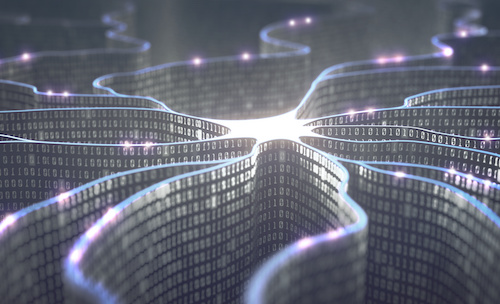Key points:
- AI will have a wide-ranging impact on education, particularly on personalized learning
- Education’s unpreparedness for the future is exemplified by the emergence of entirely new fields driven by prompt engineering
- See related article: Is AI the future of education?
- Everything You Need To Know About AI In Education
Some of my most distinct memories from high school involve struggling to grasp abstract concepts without visual or interactive tools. When I was a high school student, technology was significantly limited compared to today’s. I recall longing for resources such as online encyclopedias, interactive simulations, and virtual tutoring that would have made learning more interactive and accessible. Instead, my classmates and I were left to suffer through content-heavy, teacher-led lessons that lacked imagination or passion.
Sound familiar?
At no point did I blame my teachers. They, like most, had the undesirable task of delivering the same content to disengaged teens, not once, but many times a day. Fast forward to the present, and the landscape has changed dramatically.
Prompt engineering empowers learners to think critically, collaborate effectively, and devise innovative solutions. Artificial intelligence teaching assistants, like Jill Watson at the Georgia Institute of Technology, offer support to students in what was once considered unimaginable ways.
During the mid-1990s, while pursuing my A-level sociology studies, I became captivated by the enigmatic realm of hyperreality. This concept, coined by French philosopher Jean Baudrillard, posits blurred boundaries between reality and simulation in postmodern societies. Now, a quarter of a century later, I find Baudrillard’s theories informing my work as an educator.
The reason why? ChatGPT and other AI platforms have made the relevance of hyperreality more apparent than ever.
In my own career consulting with educators on better ways of approaching academia through the lens of empowering students, I have been inspired by the opportunity to bridge the gap between traditional education and modern technological advancements. I envisioned an educational system that integrates prompt engineering and AI, resulting in enhanced curriculums and the fostering of a comprehensive, dynamic learning experience. This technology-fueled approach would equip students with the skills necessary to excel in an AI-driven world while preserving core academic knowledge.
I’ve already seen students embrace these technologies firsthand, and in doing so, engage in more meaningful learning and experience a deeper understanding of complex subjects.
A notable example of AI’s transformative influence in education arises from a project where students harnessed AI to create a chatbot that delved into the complexities of traditional Chinese medicine (TCM). This innovative application not only fostered intellectual curiosity but also led to a deeper understanding of the cultural and historical nuances of TCM. Furthermore, AI’s potential to detect and address learning disabilities early on showcases its capacity to drive a more inclusive and tailored learning experience, emphasizing the significance of merging AI with traditional academic approaches for a more enriching and adaptive education.
The educators we consult have also seen their own student success with dynamic prompting in multiple ways, including their ability to explain ideas across various degrees of complexity, revise and offer constructive feedback, overcome creative roadblocks, serve as a discussion partner, and provide summaries.
In short, the role of AI in the future of education will be significant.
Shockingly, education’s unpreparedness for the future is exemplified by the emergence of entirely new fields driven by prompt engineering. For instance, Bioinformatics Design combines biology, computer science, and information technology, while Cognitive Gaming merges cognitive science, game design, and artificial intelligence. The rapid rise of immersive educational experiences, such as those offered by EA Sports, is currently transforming the UK schooling system, highlighting the need for modernized curricula that can keep pace with these groundbreaking advancements.
As technology advances, AI will increasingly facilitate personalized learning and empower educators to effectively identify and address individual student needs. This shift will create a more inclusive and engaging educational landscape, preparing students to thrive in a rapidly evolving world. Those who don’t adapt risk irrelevance; think Kodak or Blockbuster.
Furthermore, AI will help the early identification of learning challenges, allowing for timely interventions and support for students who might otherwise fall behind. This change will foster equity and inclusion, ensuring that all students have the opportunity to succeed. For students with learning disabilities, AI-driven tools can analyze patterns in their academic performance and behaviors, identifying potential challenges early on. AI has the potential to revolutionize our efficiency in detecting learning barriers such as dyslexia and other language-based differences, paving the way for timely interventions and personalized support.
The significance of developing these skills can’t be overstated. With hundreds of prompt-engineering handbooks now available online and some job postings offering starting salaries over $175,000, this field has rapidly emerged since its inception at the end of 2022, and even if job posts aren’t directly asking for prompt engineering, then it will be a consideration in a fantastic range of other positions.
My journey from studying Baudrillard’s hyperreality in the mid-1990s to my role today exemplifies the transformative power of prompt engineering and AI integration in education. By embracing these advancements, we can create a dynamic, engaging, and future-ready educational system that equips learners with critical thinking skills, adaptability, and a passion for shaping a brighter future.
Related:
Edtech leaders offer guidance on safe AI classroom integration
How AI enhances personalization in education
- 4 ways to encourage play in education - April 25, 2024
- CoSN IT Leader Spotlight: Lisa Higgins - April 25, 2024
- It’s time to pay student teachers - April 25, 2024

